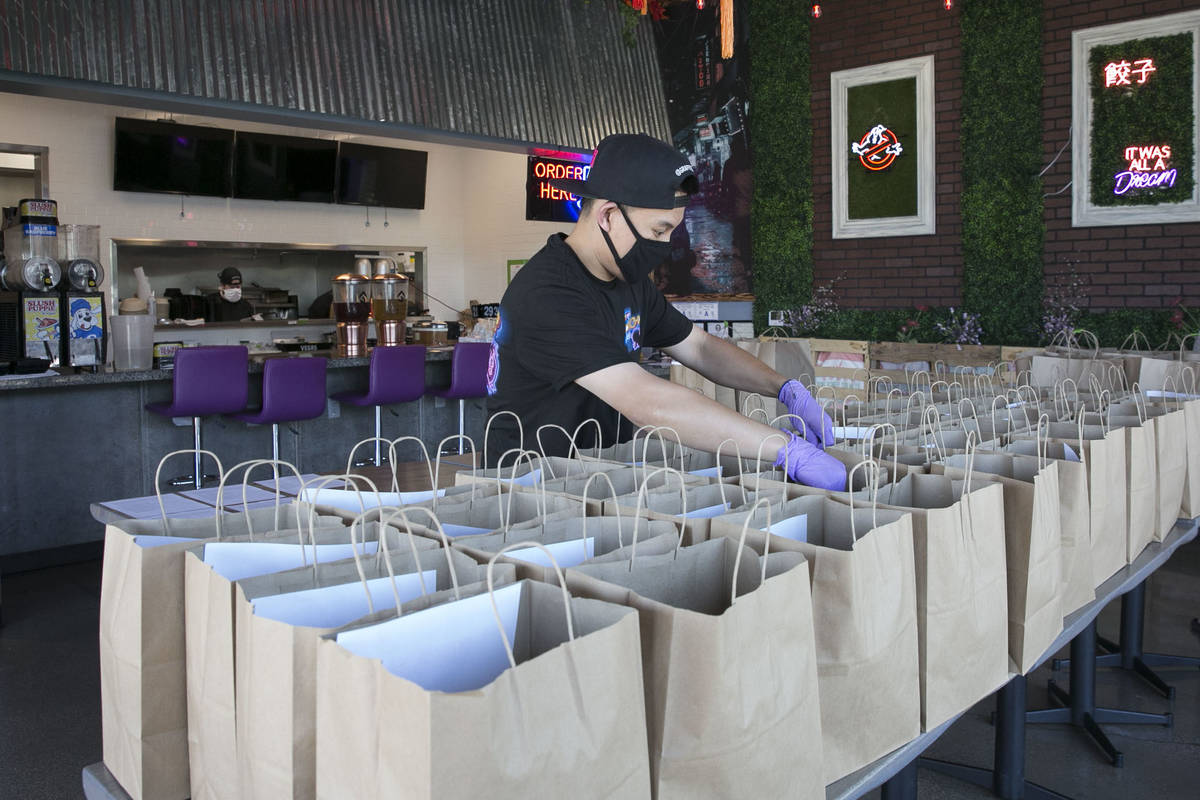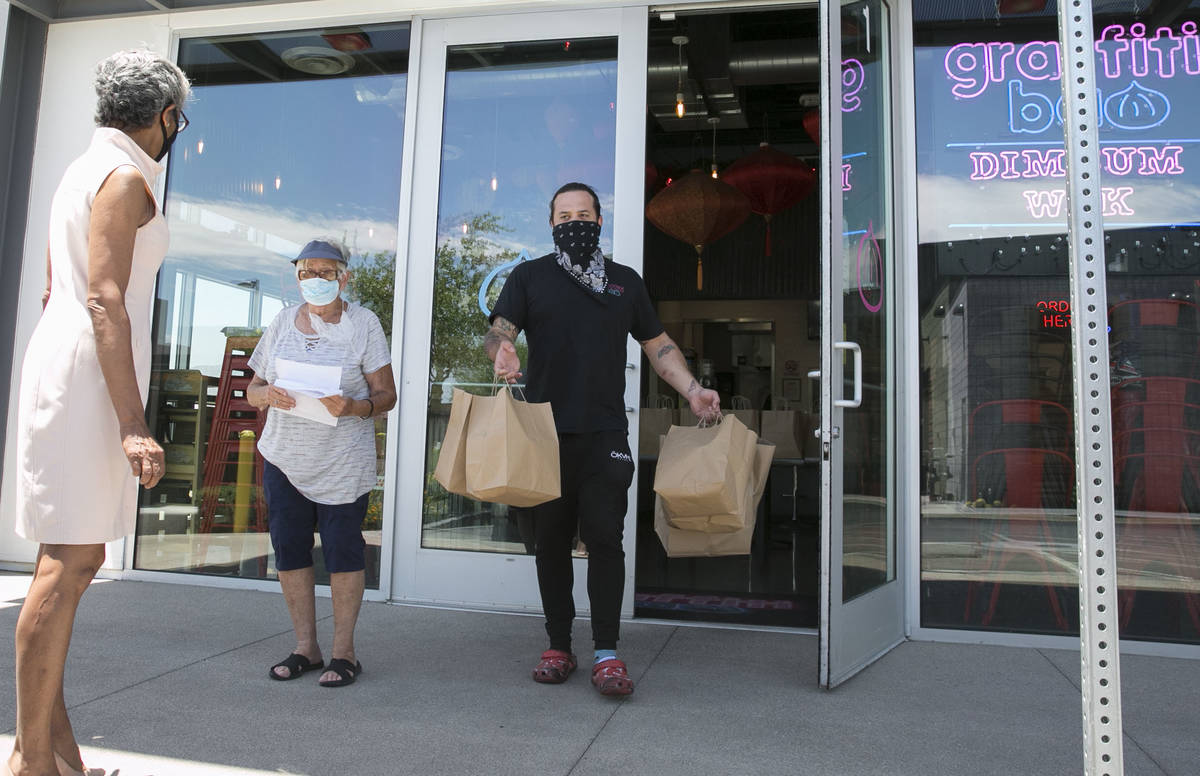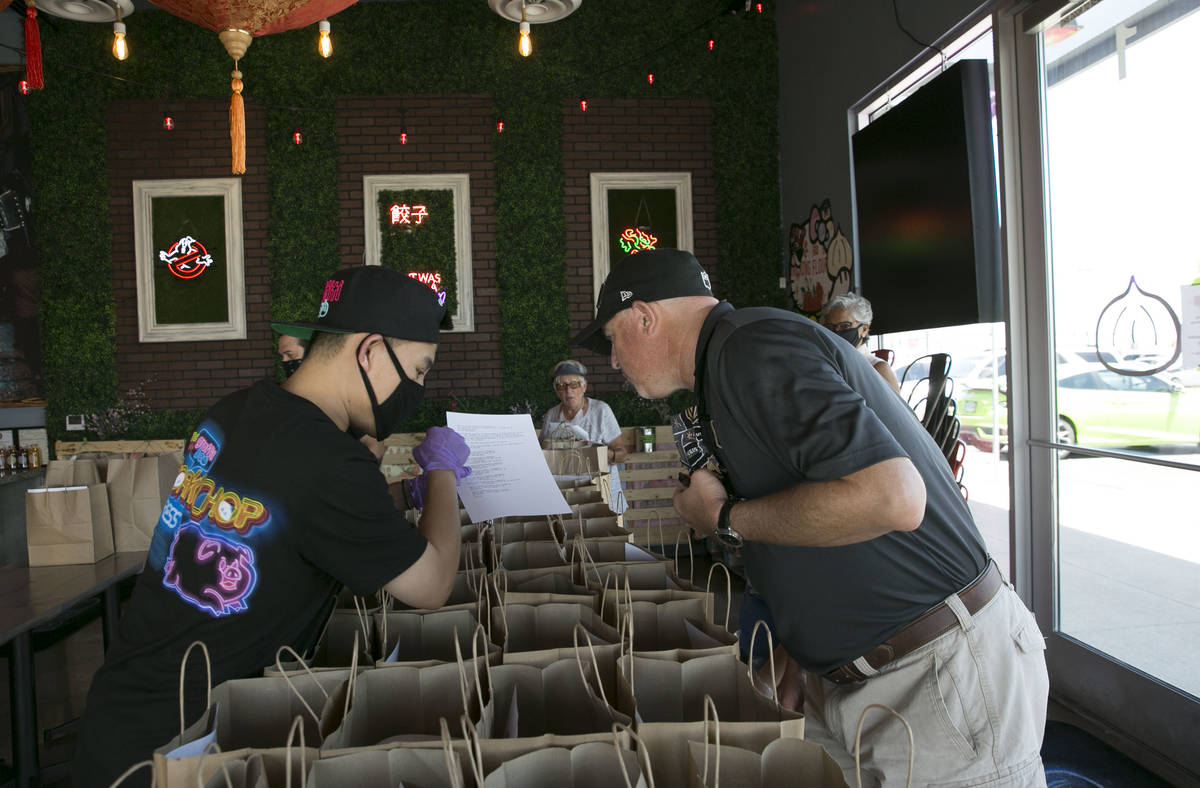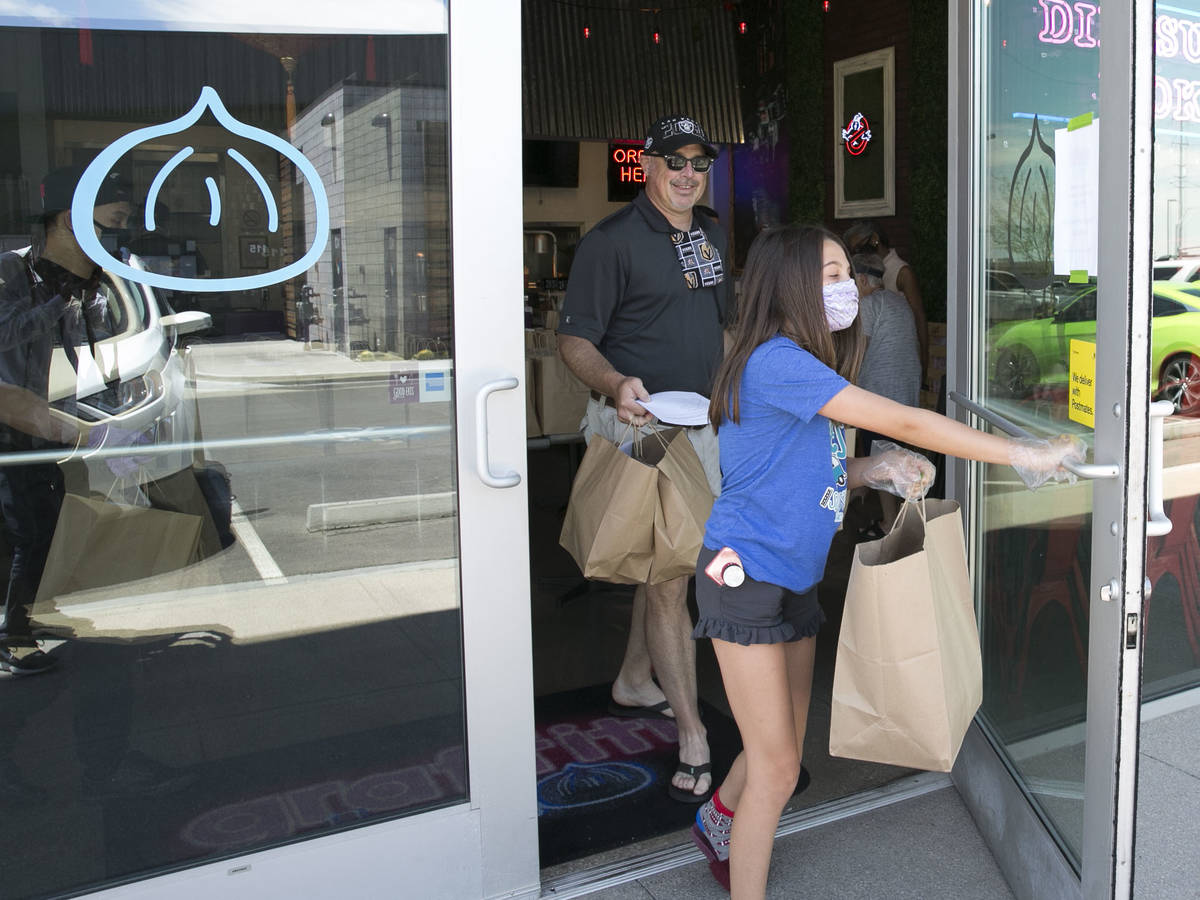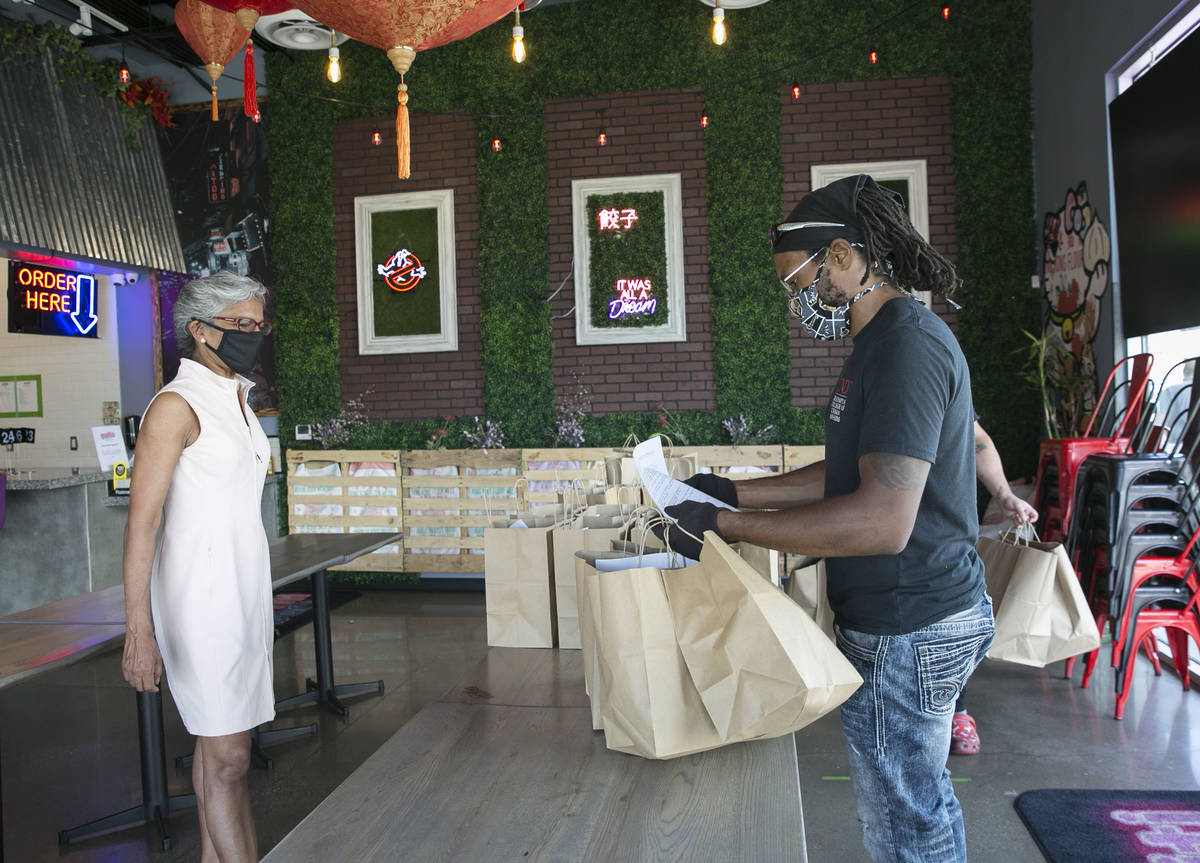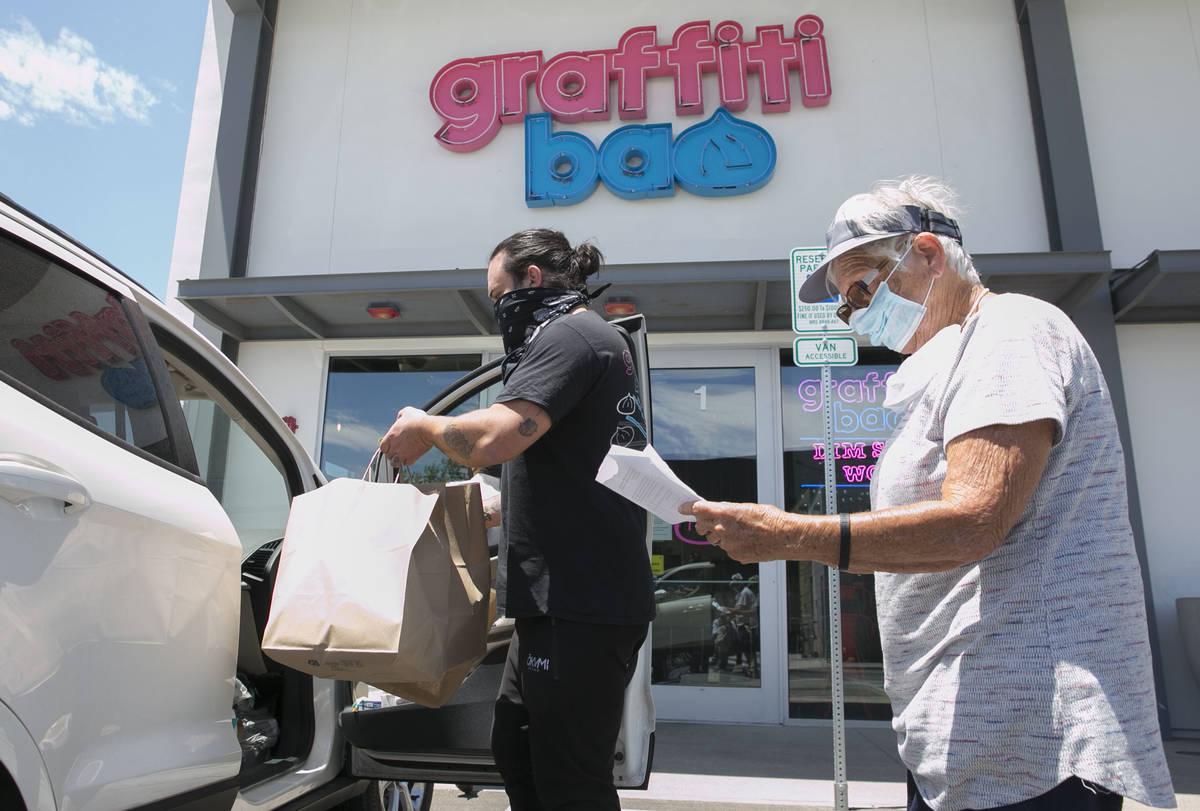Some Las Vegas nonprofits struggle to survive, others thrive amid pandemic
Terri Janison does not know whether her nonprofit can still hold its annual gala at the newly built Allegiant Stadium this fall.
The gala usually brings in $500,000 for the Grant a Gift Autism Foundation, but coronavirus-related job and profit losses have made would-be individual and corporate donors think twice about giving this year to nonprofits. And a gala with 1,000 people isn’t the best place for social distancing.
“We are cutting expenses to the bone,” she said. “We’re watching every month what our expenses are, the income, and make contingency plans.”
The foundation is one of many Las Vegas Valley-area nonprofits that is re-evaluating its budget as fundraisers get pushed back or canceled. Some have been able to keep their workers or adapt operations, but others have had to stop operations, potentially resulting in long-term effects for the community.
“Nonprofits that produce and support recovery, from agencies that help people apply for jobs, get people retrained, or help people in economic turmoil — they fill in a lot of the cracks that the government can’t or don’t provide,” said Jessica Word, an associate professor at UNLV’s School of Public Policy and Leadership.
Stung by pandemic
According to a recent UNLV report that collected responses from 149 Nevada nonprofits between late April to mid-May, arts and culture nonprofits in the state faced the most significant challenges as the pandemic forced many organizations to cancel fundraising events. But nearly 20 percent of all nonprofits indicated that they were unlikely to make payroll in the next month.
“When donors are facing higher levels of uncertainty, they tend to hold off on gifts or donations, so that means it’s much harder for organizations to project revenues,” said Word, who conducted the survey and authored the report.
Linda Perez, CEO of The Shade Tree, said the nonprofit will be in limbo if the $250,000-plus won’t come in this year as she was expecting. That amount, usually raised in a fall gala, is the nonprofit’s “hugest fundraiser,” she said.
The Shade Tree, which provides safe shelter to homeless and abused women and children, relies on fundraisers to help these women and children with housing, a job, transportation or “anything they need,” and pay staffers.
Perez had to lay off a few employees and is currently “holding off ” as much as she can.
Stepping up
Other nonprofits, like Three Square food bank, are seeing an uptick in need caused by the pandemic and adapting accordingly.
“We had 272,000 food insecure people in Southern Nevada pre-pandemic,” said Larry Scott, chief operating officer of Three Square. “Today that number is estimated to be just under 450,000. If that unemployment number stays in the 20 percent to 30 percent ranges, our work is going to increase by at least 50 percent going forward.”
Las Vegas’ unemployment rate surged to 33.5 percent in April, the U.S. Bureau of Labor Statistics reported this month.
Scott said the food bank “had to completely change” its business model to accommodate demand and social distancing guidelines. At drive-thru sites, volunteers load food into the trunk of cars that line up. Three Square has also seen donations go up.
“We have just been treated so well by the community and they have stepped up to help the needy,” Scott said. “There’s no shortage of philanthropy, or the donation of food or their time.”
One program that came from the pandemic: Delivering With Dignity, a pilot service that delivers restaurant-quality meals to residents most vulnerable to the coronavirus.
“The idea was to keep independently owned restaurants alive by paying $6 per meal to give them breathing room to keep kitchen staff on payroll and supplement their grab-and-go business,” co-founder Punam Mathur said.
Clients are identified by the 35 nonprofits Delivering With Dignity has partnered with. To date, five restaurants have made more than 60,000 meals delivered to Las Vegas Valley-area residents since late March, Mathur said.
Long-term problems
The United Way of Southern Nevada CEO Kyle Rahn said the organization’s new volunteer matchmaking platform has benefited valley nonprofits that are seeking help. So far, more than 400 volunteers have registered on the UWSN’s site and can choose from projects listed by nonprofit organizations requesting help.
The organization has given money to vetted nonprofits that have requested help for food, shelter, rent and utilities payments to keep afloat. “We are very busy helping shore up the nonprofit community,” Rahn said.
The organization has been hosting conference calls since mid-March with upward of 180 nonprofits and community organizations each week “so that we know what’s going on, the needs are, what they do and don’t have,” Rahn said.
Rick Cohen, chief operating officer with the National Council of Nonprofits, said survival is top of mind for many nonprofits across the country as demand soars and revenues drop. “Many are going to have to change the way they operate forever. Nonprofits are the first ones hurt in a recession and the last to recover,” he said.
Some nonprofits have found relief in the CARES Act, the $2 trillion federal stimulus package enacted in March.
But UNLV’s Word said not everybody is aware that nonprofits are eligible for the Paycheck Protection Program, or PPP, or other federal programs, such as the Employee Retention Credit or the Families First Coronavirus Response Act.
Janison said the Grant a Gift Autism Foundation received PPP money that is helping to keep everybody employed full time, at least until mid-July.
“I’ve got reserves,” she said. “But from a nonprofit standpoint, you don’t want to wipe out all of your reserves.”
Contact Jonathan Ng at jng@reviewjournal.com. Follow @ByJonathanNg on Twitter.



